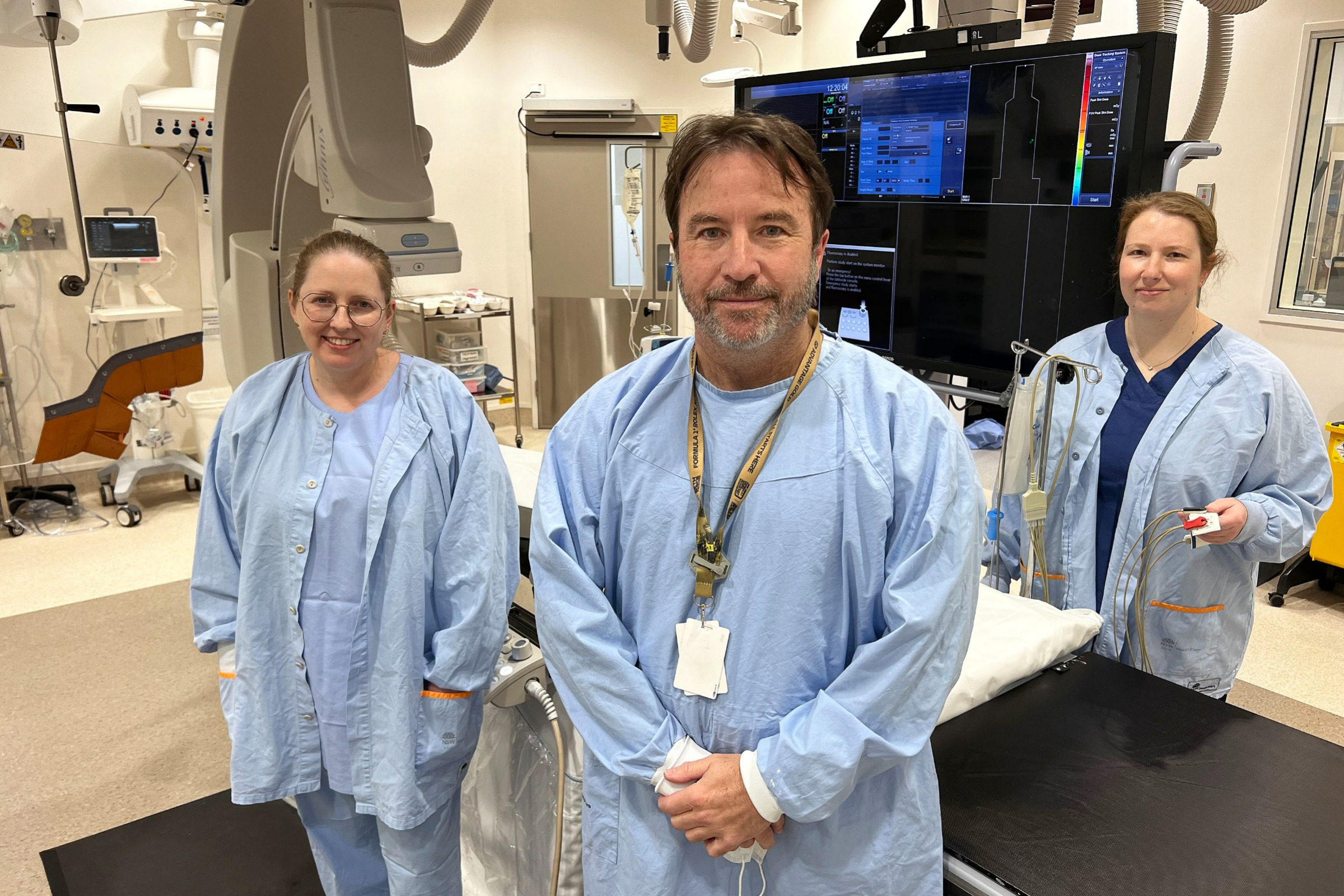Keeping everyone safe in St George Hospital’s Cardiac Cath Lab
Colleagues are quick to say that Senior Medical Radiation Practitioner Glenn Ison goes above and beyond when it comes to keeping staff safe at St George Hospital’s Cardiac Cath Lab. From sourcing the best quality radiation shields to his on-going research into radiation safety, Glenn works hard to ensure staff know they are working in a safe environment.
This hard work was recently acknowledged at an international cardiology conference in Paris, run by Percutaneous Coronary Revascularisation (PCR), part of the European Cardiac Society.
Glenn and the multidisciplinary research team from St George Hospital won “Best Scientific Abstract (Nursing and Allied Health)” for their research into safe levels of radiation that staff can be exposed to while pregnant. This research expands on a previously awarded study the team undertook in 2016 that changed cath lab ceiling shield size worldwide after their research found a higher-than-expected radiation dose to scrub nurses’ eyes.
The research team, Glenn Ison, Senior Medical Radiation Practitioner, Dr Zara Rolfe, Registrar, Dr Sacha Kepreotis, Cardiologist (formerly St George Hospital), Michelle Giddens, Registered Nurse, Sarah Faase, Registered Nurse, Michelle Standfield, Registered Nurse, Amber Keen, Medical Radiation Practitioner, Dr Anath Prasan, Senior Staff Specialist and Dr Mark Sader, Director Cath Lab, Senior Staff Specialist, collected data that quantified the number of interventional procedures cardiologists, allied health staff and nurses could do while remaining under the safe threshold level of radiation allowed for people when pregnant.
The results showed that with the additional protective table shields recently purchased for St George Hospital cath labs, pregnant cardiologists and nurses can safely perform average caseloads. The team’s research has once again changed shielding designs for the future cath labs.
“Only about 10% of Interventional Cardiologists are women and I hope the findings of this research will alleviate any fears women may have about working in this environment while pregnant and ultimately encourage more female doctors to specialise in this area,” Glenn explained.
